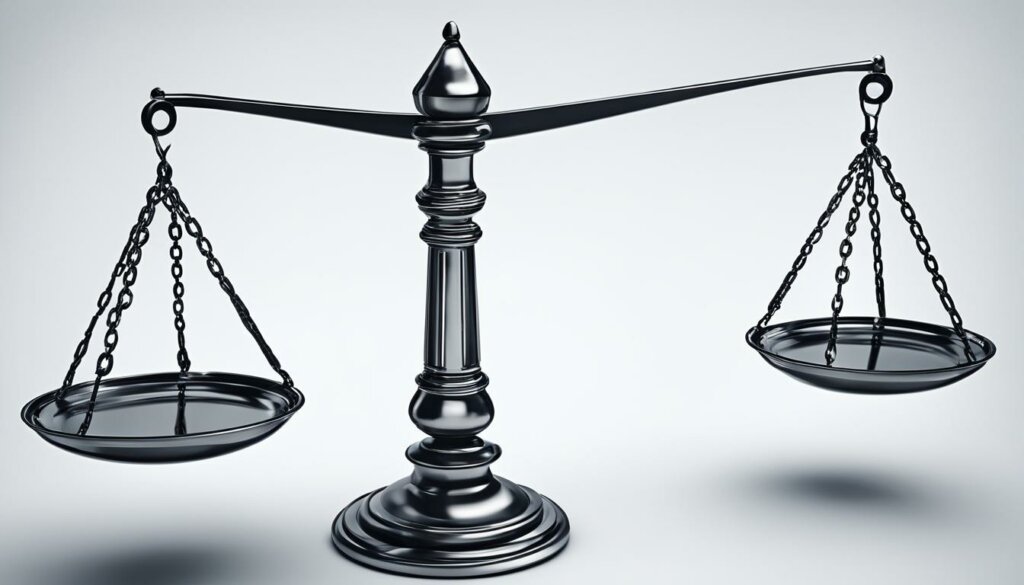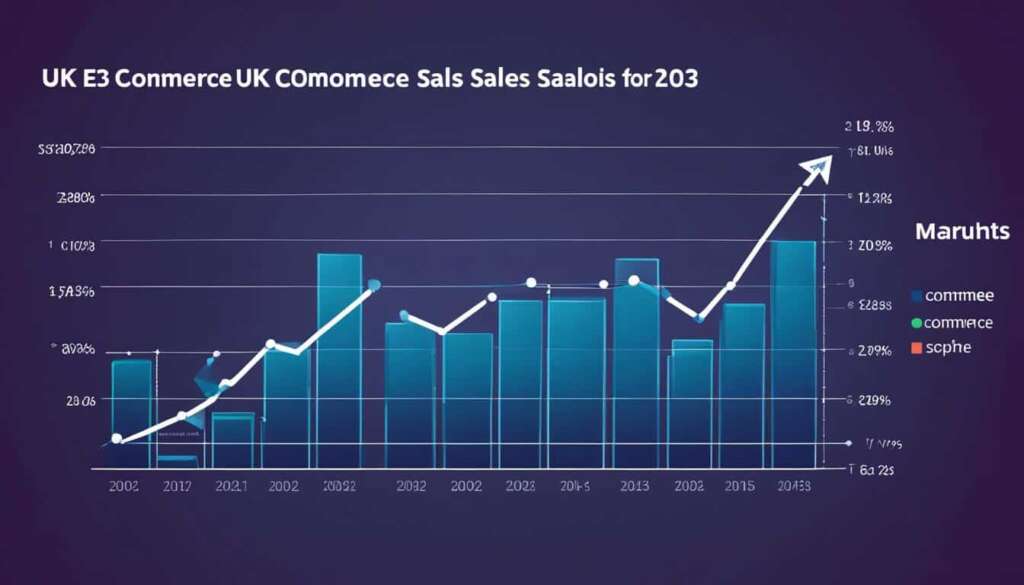Table of Contents
The E-Commerce Directive is a crucial piece of legislation that sets the groundwork for online businesses in the European Union (EU). It establishes harmonized rules and guidelines for various aspects of e-commerce, ensuring transparency and consumer protection.
Under the directive, online service providers, including websites, search engines, and online marketplaces, must comply with specific requirements regarding information provision and commercial communications. It also outlines rules for electronic contracts, ensuring that consumers receive the necessary details to make informed decisions when engaging in online transactions.
Furthermore, the E-Commerce Directive addresses the liability of intermediaries, such as hosting service providers, by establishing conditions for exemption from liability for the content they manage. This provision prevents intermediaries from bearing responsibility for user-generated content, unless they have actual knowledge of its illegal nature.
The directive plays a pivotal role in shaping the e-commerce landscape within the EU and promoting a fair and secure online environment for both businesses and consumers. It covers a wide range of services, including online information services, online selling of products and services, online advertising, professional services, and entertainment services.
However, as the digital world continues to evolve, new challenges arise that necessitate an update to the regulatory framework. The European Commission has proposed the Digital Services Act (DSA) to build upon the principles of the E-Commerce Directive and address emerging issues in online regulation.
As the EU continues to refine its e-commerce framework and address future challenges, it remains committed to promoting a level playing field for businesses and protecting the rights and interests of consumers. Stay tuned to learn more about the internal market clause, liability of intermediaries, covered services, and the future of online regulation.
The Internal Market Clause of the E-Commerce Directive
The internal market clause is a key principle of the E-Commerce Directive. It ensures that providers of online services are subject to the laws of the Member State in which they are established, rather than the laws of the Member States where the service is accessible.
This principle promotes a level playing field for online services and prevents the fragmentation of regulations across multiple jurisdictions. It allows online service providers to operate seamlessly across the EU single market while complying with the laws of their country of establishment.
Without the internal market clause, online service providers would face significant regulatory challenges and barriers to entry when operating in different Member States.
| Country | Establishment State | Accessibility State | Applicable Law |
|---|---|---|---|
| Germany | Germany | Germany | German Law |
| France | France | France | French Law |
| Italy | Italy | Italy | Italian Law |
| Spain | Spain | Spain | Spanish Law |
| United Kingdom | United Kingdom | United Kingdom | UK Law |
Liability of Intermediaries under the E-Commerce Directive
The E-Commerce Directive provides an important exemption for intermediaries from liability concerning the content they manage, under certain conditions. Intermediaries, including hosting service providers, are not held responsible for the content posted by their users, unless they have actual knowledge of its illegal nature. This allows intermediaries to facilitate the exchange of information and services online without being burdened with continuous monitoring responsibilities.
Once intermediaries become aware of any illegal content on their platforms, they have an obligation to promptly remove or disable access to it. This swift action aims to minimize the dissemination of harmful or unlawful material and protect users from potential harm. Nonetheless, the responsibility for monitoring the content lies with those posting it, rather than the intermediaries themselves. By enforcing this principle, the E-Commerce Directive strikes a balance between facilitating online business activities and safeguarding against illegal content.
The liability exemption applies to intermediaries who adopt a neutral and passive role in relation to the content posted by their users. This means that intermediaries are not expected to actively monitor all content on their platforms. Such a requirement could impede users’ freedom of expression and compromise their privacy rights. Instead, the emphasis is on intermediaries promptly responding to reports or notifications of illegal content when they are made aware of it.
Preventing Unfair Discrimination
The E-Commerce Directive also prohibits Member States from imposing general content monitoring obligations on intermediaries. This safeguard prevents intermediaries from being overwhelmed with the task of actively monitoring all content, which could place an undue burden on their operations and potentially hinder the growth of e-commerce platforms.
By protecting intermediaries from strict liability, the E-Commerce Directive promotes innovation and entrepreneurship in the digital space. Intermediaries can facilitate a thriving online marketplace while adhering to their legal obligations to promptly address any illegal content that comes to their attention.
Intermediaries play a crucial role in enabling the flow of information and services online. The liability exemptions provided by the E-Commerce Directive strike a balance between ensuring accountability for illegal content and fostering an open and innovative digital environment.
| Liability of Intermediaries under the E-Commerce Directive | |
|---|---|
| Exemption for intermediaries from liability | Under certain conditions, intermediaries are not held liable for user-generated content. |
| Responsibility for illegal content | Once intermediaries become aware of illegal content, they must promptly remove or disable access to it. |
| Neutral and passive role | Intermediaries are exempt from liability if they play a neutral and passive role towards the content hosted on their platforms. |
| Prohibition of general content monitoring obligations | Member States cannot impose general content monitoring obligations on intermediaries. |

In summary, the E-Commerce Directive provides intermediaries with a liability exemption for the content they manage, as long as they meet certain criteria. This exemption allows intermediaries to facilitate online services and information exchange, while also promoting user safety and protection. Member States are prohibited from imposing general content monitoring obligations, ensuring a fair balance of responsibilities between intermediaries, users, and regulators.
Services Covered by the E-Commerce Directive
The E-Commerce Directive encompasses various services within its ambit, ensuring a comprehensive framework for online transactions and interactions. The directive covers a wide range of services, including:
- Online information services: Websites and search engines that provide valuable online content and facilitate access to information.
- Online selling of products and services: Platforms that enable businesses to showcase and sell their offerings to consumers.
- Online advertising: Platforms that allow businesses to promote their products or services to a wide audience.
- Professional services: Online platforms that offer specialized knowledge and expertise in various fields.
- Entertainment services: Platforms that provide digital entertainment content such as streaming services, gaming platforms, and digital media.
- Intermediary services: Basic intermediary services, including those funded by advertising and provided free of charge to the recipient.
The E-Commerce Directive aims to create a harmonized e-commerce framework within the European Union, ensuring fair access to online content and preventing discriminatory practices against consumers and businesses. By covering a diverse range of services, the directive seeks to facilitate a seamless digital marketplace where individuals and businesses can engage in online activities with confidence.
By enforcing a consistent set of regulations and standards, the directive promotes transparency, consumer protection, and fair competition in the online sphere. It empowers both consumers and businesses while fostering trust and reliability in e-commerce transactions.
Note: The image above represents the various intermediary services covered by the E-Commerce Directive.
Take a look at the table below for a detailed overview of the services covered by the E-Commerce Directive:
| Service Type | Description |
|---|---|
| Online information services | Websites and search engines that provide online content and information. |
| Online selling of products and services | Platforms that facilitate the sale of goods and services online. |
| Online advertising | Platforms that enable businesses to advertise their products or services online. |
| Professional services | Online platforms offering specialized knowledge and expertise in various fields. |
| Entertainment services | Platforms that provide digital entertainment content, such as streaming services and gaming platforms. |
| Intermediary services | Basic intermediary services funded by advertising and provided free of charge to recipients. |
The Digital Services Act and the Future of Online Regulation
The Digital Services Act (DSA), proposed by the European Commission, builds upon the principles and provisions of the E-Commerce Directive to address new challenges in the online environment. It aims to update and strengthen the regulatory framework for online intermediaries, taking into account the evolving digital landscape since the adoption of the E-Commerce Directive. The DSA is expected to address issues related to content moderation, illegal content, liability of intermediaries, and harmonization of rules across the EU. It will provide clearer guidelines and obligations for online platforms and service providers to ensure a safer and more transparent online environment for users.
The rapid growth of digital services, alongside the increasing prevalence of online intermediaries, has posed regulatory challenges that require a comprehensive and up-to-date approach. The Digital Services Act is a response to these challenges and aims to establish a more effective and robust framework for online regulation.
One of the key aspects that the DSA addresses is content moderation. The proliferation of harmful and illegal content poses risks to users and society as a whole. The DSA aims to establish clearer obligations for online platforms to monitor and remove such content, while ensuring transparency and accountability in the process.
The liability of intermediaries is another crucial area that the DSA aims to regulate. Online intermediaries play a significant role in connecting users and facilitating the exchange of information and services. However, their growing influence and impact require a comprehensive framework that clarifies their responsibilities and obligations. The DSA will provide guidelines on the liability of intermediaries, ensuring that they take appropriate measures to prevent the dissemination of illegal content and uphold user safety.
Furthermore, the DSA seeks to harmonize rules across the EU to create a level playing field for online platforms and service providers. Currently, different Member States have varying regulations and requirements, leading to fragmentation and inconsistencies. The DSA aims to establish a cohesive regulatory framework that promotes fair competition and facilitates cross-border operations.
Benefits of the Digital Services Act
- Enhanced user protection: The DSA will impose stricter obligations on online platforms to protect users from harmful content, ensuring a safer online environment.
- Clear guidelines for online intermediaries: The DSA will provide intermediaries with clearer guidance on their responsibilities and obligations, enabling them to operate within a regulated framework.
- Harmonized rules across the EU: The DSA aims to establish consistent regulations across Member States, reducing barriers to entry and promoting fair competition.
- Better enforcement mechanisms: The DSA will strengthen enforcement mechanisms, enabling regulatory authorities to take appropriate actions against non-compliant platforms and service providers.
The Digital Services Act represents a significant step towards addressing the regulatory challenges posed by the evolving digital landscape. By establishing clearer guidelines and obligations for online platforms and service providers, the DSA aims to ensure a safer, more transparent, and harmonized online environment for users across the EU.

Public Consultations and Expert Group Discussions
The European Commission recognizes the importance of engaging with stakeholders and evaluating the effectiveness of the e-Commerce Directive to shape the future of the digital world. To achieve this, public consultations are conducted, providing an opportunity for consumers, public authorities, NGOs, and SMEs to share their perspectives. These consultations assess whether the EU rules on the e-commerce framework are up to date and have truly benefited European citizens and businesses.
“Public consultations offer a valuable platform for stakeholders to voice their opinions on emerging issues in the e-commerce landscape.”
Feedback obtained from public consultations contributes to an ongoing review and improvement process of the e-Commerce Directive. It helps identify potential areas for enhancement and provides valuable insights into the challenges faced by various stakeholders in the digital market.
In addition to public consultations, the European Commission establishes an expert group to foster administrative cooperation between Member States and address specific problems in the application of the e-Commerce Directive. This expert group serves as a forum for discussions on emerging issues and encourages collaboration among key stakeholders.
Enhancing Administrative Cooperation
The expert group facilitates the exchange of knowledge and best practices among Member States, enabling them to learn from each other and streamline their enforcement efforts. It ensures that there is a consistent approach across different jurisdictions, promoting harmonization and avoiding fragmentation of regulations.
Identifying Emerging Issues
The discussions within the expert group shed light on emerging issues in the e-commerce landscape. These can include challenges related to cross-border transactions, consumer protection, digital rights, and the evolving nature of online business models. By identifying these emerging issues, the expert group helps inform the development of future regulatory measures, such as the Digital Services Act.
“The expert group plays a crucial role in shaping the regulatory landscape and ensuring that the e-Commerce Directive remains relevant in an ever-changing digital environment.”
Through public consultations and expert group discussions, the European Commission aims to foster a transparent and inclusive decision-making process. By actively involving stakeholders and considering their input, the Commission can make informed decisions that benefit both consumers and businesses operating in the e-commerce sector.
These consultations and discussions form an integral part of the review and improvement of the e-Commerce Directive, ensuring that it effectively addresses emerging challenges and paves the way for a fair and thriving digital economy within the European Union.
| Benefits of Public Consultations and Expert Group Discussions | Key Stakeholders Involved |
|---|---|
| Fosters transparency and inclusivity in decision-making | Consumers |
| Provides insights into the challenges faced by stakeholders | Public authorities |
| Identifies areas for enhancement and improvement | Non-Governmental Organizations (NGOs) |
| Promotes harmonization and consistency across Member States | Small and Medium Enterprises (SMEs) |
| Informs the development of future regulatory measures |
Conclusion
The E-Commerce Directive has played a crucial role in establishing the regulatory framework for online businesses within the European Union. It has provided a solid foundation for transparency, consumer protection, and the liability of intermediaries in the digital marketplace. However, the rapidly evolving digital landscape has brought forth new challenges that necessitate a comprehensive update of the regulatory framework.
The Digital Services Act is a promising step towards addressing these challenges and building upon the principles laid out in the E-Commerce Directive. By maintaining the core principles such as the country of origin principle, limited liability regime, and the prohibition of general monitoring obligations, the Act seeks to create a fair and secure online environment for businesses and consumers alike.
In shaping the future of digital regulation, public consultations and expert group discussions play a vital role. These engagements ensure that the interests of all stakeholders, including consumers and businesses, are safeguarded. By addressing emerging issues and identifying future challenges, the regulatory framework can be further refined to adapt to the ever-changing digital landscape.
Overall, the E-Commerce Directive and the proposed Digital Services Act form the foundation for a robust regulatory framework that strives to balance the needs of online businesses with appropriate consumer protection measures. By continuously evaluating and updating the framework, the EU is well-equipped to navigate the future challenges of the digital world and foster a thriving online economy.
FAQ
What is the E-Commerce Directive?
The E-Commerce Directive is a set of harmonized rules that establish transparency and information requirements for online service providers, commercial communications, electronic contracts, and the limitations of liability of intermediary service providers.
What services does the E-Commerce Directive cover?
The E-Commerce Directive covers a wide range of services within its scope, including online information services, online selling of products and services, online advertising, professional services, and entertainment services.
What is the internal market clause of the E-Commerce Directive?
The internal market clause ensures that providers of online services are subject to the law of the Member State in which they are established, rather than the law of the Member States where the service is accessible. This principle allows online service providers to operate across the EU single market while complying with the laws of their country of establishment.
What is the liability of intermediaries under the E-Commerce Directive?
The E-Commerce Directive provides an exemption for intermediaries from liability for the content they manage if they meet certain conditions. Intermediaries are not held responsible for the content posted by their users unless they have actual knowledge of its illegal nature. However, they are required to remove or disable access to illegal content once they become aware of it.
What is the Digital Services Act?
The Digital Services Act is a proposed regulation that builds upon the principles and provisions of the E-Commerce Directive to address new challenges in the online environment. It aims to update and strengthen the regulatory framework for online intermediaries, providing clearer guidelines and obligations for platforms and service providers.
How are public consultations and expert group discussions involved in shaping digital regulation?
The European Commission conducts public consultations and engages with stakeholders to evaluate the effectiveness of the e-Commerce Directive and address emerging issues. Expert group discussions enhance administrative cooperation between Member States and inform the ongoing review and improvement of the directive, as well as the development of future regulatory measures like the Digital Services Act.
What is the purpose of the E-Commerce Directive?
The E-Commerce Directive aims to establish a harmonized e-commerce framework, prevent unfair discrimination against consumers and businesses within the EU, and provide transparency, consumer protection, and liability rules for online service providers.













